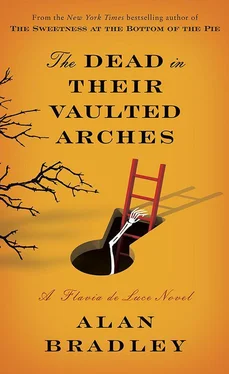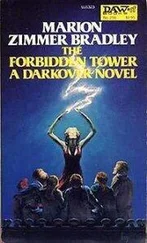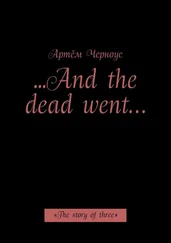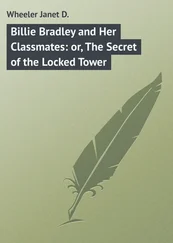It was Dogger.
All I could do was nod.
“I beg your pardon for intruding,” he said, fanning his hands at the air and opening a window, “but Colonel de Luce wishes the family to congregate in the drawing room in a quarter of an hour.”
“Thank you, Dogger. I shall be along directly.”
Dogger didn’t move. His nostrils dilated as he very slightly raised his chin.
“Acetate?” he asked, not even bothering to take a full-fledged sniff.
“I believe it is,” I said. “If it had been cellulose nitrate we’d be in rather a sticky spot.”
“Indeed,” Dogger agreed. “May I be of assistance?”
I paused for only a fraction of a second before blurting out, “Can ciné film be patched?”
“It can indeed,” Dogger replied. “It is referred to in the trade, I believe, as ‘splicing.’ A few drops of acetone should do the trick.”
I reviewed the reaction in my mind.
“Of course!” I said. “A chemical bonding of the celluloid.”
“Just so,” Dogger said.
“I should have thought of that,” I admitted. “Wherever did you learn it?”
A cloud drifted across Dogger’s face, and for a few unsettling moments, I felt as if I were suddenly in the presence of an entirely different person.
A complete stranger.
“I—don’t know,” he said at last, slowly. “These fragments appear suddenly sometimes at the tips of my fingers—or on my tongue—as if—”
“Yes?”
“As if—”
I held my breath.
“Almost as if they were memories.”
And with those words the stranger had vanished. Dogger was suddenly back.
“May I be of assistance?” he asked again, as if nothing had happened.
Now here was a pretty pickle! Much as I wanted Dogger’s help, some dark and ancient part of me clung stubbornly to keeping the spool of film a secret.
It was all so beastly complicated! On the one hand, part of me wanted to be patted on the head and told “Good girl, Flavia!” while at the same time, another part wanted to hoard this new and unexpected glimpse of Harriet: to keep the film strictly to myself, like a dog with a fresh-flung soup bone.
But then, I thought, Dogger had never actually met Harriet in person: He had not come to Buckshaw until after the War. In an odd way, Harriet was no more to him than a shadow left behind by the deceased wife of his employer—in much the same way, I realized with an unpleasant pang, as she was to me.
Except, of course, that she was also my mother.
What it came down to, then, was this: How much did I trust Dogger?
Could I swear him to secrecy?
A minute later we were in the darkroom. Dogger had switched on the exhaust fan (which I hadn’t known existed) and was examining the sticky residue in the guts of the projector. The smoke and the fumes had dissipated and with them, the fear of an explosion.
“No great harm done, I think,” he told me. “Not more than a few frames burnt. Do you have scissors?”
“No,” I said. I had recently ruined a perfectly good pair of scissors by using them to cut a piece of zinc in a failed experiment intended to retrieve fingerprints from a downspout by an acid etching process of my own invention.
“Anything else sharp?” Dogger asked.
Somewhat shamefaced, I pulled from a drawer Father’s prized Thiers-Issard hollow-ground straight razor: one I had borrowed in the past, which had come in so handy that I was thinking of asking for one of my own next Christmas.
“Ah,” Dogger said. “So that’s where it got to.”
“I took care to keep it in its case,” I pointed out. “Accidents, and so forth.”
“Very wise,” Dogger said. He did not mention returning the thing to Father, as many people would have done. That’s another of the things I love about Dogger: He’s not a snitch.
“To begin with, we cut out the damaged section,” Dogger explained, “then scrape the emulsion off the film at the two fresh ends.”
“You sound as if you’ve done this before,” I remarked casually, keeping a close eye on him.
“I have, Miss Flavia. Showing ciné films of an instructional nature to hordes of uninterested men was once a not insubstantial part of my responsibility.”
“Meaning?” I asked.
Dogger’s memory was always a puzzle. There were times when he could see his own past only, as Saint Paul puts it, “through a glass darkly,” and yet at other times as if through a highly polished window.
I have often thought how maddening it must be for him: like trying to view the moon with a telescope through tattered clouds on a windy night.
“Meaning,” Dogger said, “that we shall have this film repaired hubble-de-shuff. Ah! Here we are—most satisfactory.”
He held out a length of the repaired film for my inspection, flexing it and giving the new join a good hard snap. It seemed as good as new.
“You’re a wizard, Dogger!” I told him, and he did not contradict me.
“Shall we give it a try?” he asked.
“Why not?” I said. My fears had vanished with the smoke.
Having scraped the melted muck out of the projector—I suggested using Father’s razor again, but Dogger wouldn’t hear of it—we reloaded the film, switched off the lights, and watched closely as the flickering black-and-white images brought Harriet back to life.
Here she was again, hauling herself once more from the cockpit of Blithe Spirit , Father strolling self-consciously towards the camera.
“Hullo!” I said suddenly. “Who’s that?”
“Your father,” he said. “It’s just that he’s younger.”
“No—behind him. In the window.”
“I didn’t see anyone,” Dogger said. “Let’s back things up.”
He reversed the projector. He seemed more familiar with the controls than I had been.
“Just there—look,” I insisted. “In the window.”
It happened so quickly. No wonder he had missed it.
As Father approached the camera, there was a mere shifting of the light in an upstairs window—and then it was gone.
“A man—in shirtsleeves. Tie and braces. Papers in his hand.”
“You’ve a sharper eye than I have, Miss Flavia,” he said. “It was too quick for me. We shall have another look.”
With infinitely patient fingers he reversed the film again. “Yes,” he said. “I see him now. Quite distinct: shirtsleeves, tie, braces, papers in his hand—hair parted in the middle.”
“I think you’re right,” I said. “Let’s take another squint.”
Dogger smiled and ran the scene again.
Was I seeing what I was seeing? Or was my imagination playing up on me?
But it wasn’t the man in the film that interested me so much as his location.
“How odd,” I said with a private shiver. “Whoever he is, he’s in this very room.”
And it was true. Mr. Tie-and-Braces—it was quite easy to make him out clearly once you’d got used to it—had been shuffling papers at the window of my chemical laboratory: a room which had been abandoned and locked up in 1928 after Uncle Tarquin had been found by his housekeeper, stone cold at his desk, gazing sightlessly through his microscope.
Judging by the ages of Feely and Daffy, and by the fact that I had not yet made my appearance in the world, the film had been made in about 1939: not long before I was born, and about a year before Harriet’s disappearance.
More than ten years after Uncle Tar’s death.
No one should have been in that room.
So who was the man at the window?
Had Father known he was there? Had Harriet? Surely they must have done.
“What do you make of it, Dogger?”
One of the things I love about myself is my ability to remain open to suggestion.
“American, I should say. Military, by the shirt. An NCO. Probably a corporal. Tall—six foot three, or perhaps four.”
Читать дальше












